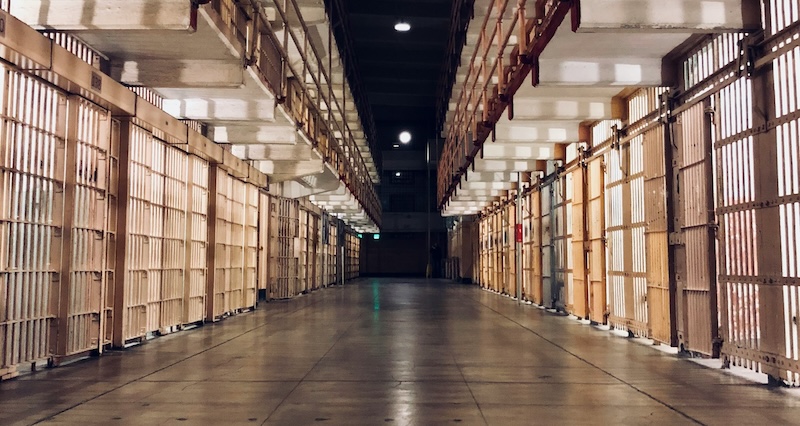University of Nottingham PPE graduate, Charlie Downey, examines the systemic biases, ethical dilemmas, and practical failures of the death penalty in modern justice systems

“Above all these things, there is the sense which we all have that this penalty, of itself, denies the very principle on which we claim the right to inflict it—namely, the sanctity of human life.” — Sydney Silverman MP, House of Commons Hansard (14 April 1948).
Sydney Silverman, a Labour MP and lifelong advocate for human rights, was instrumental in the campaign that led to the UK abolishing the death penalty in 1965 with the moral belief that no government, nor state, should wield irreversible power over life and death. This historic move acknowledged the inherent flaws, irrevocable consequences, and ethical complexities of state-administered death. While 55 countries still retain the death penalty, the trend is one of steady abolition. In 2022 alone, six countries either fully abolished or ceased executions in practice, reflecting a growing recognition of the death penalty’s incompatibility with modern justice systems.
A limit to state power?
The death penalty represents the ultimate and irreversible exercise of state power, raising profound questions about its legitimacy. The moral authority of the state to take a life has long been a subject of intense debate. Institutionalised killing is fundamentally at odds with the values of a humane and ethical society. By prioritising retribution over justice, capital punishment risks transforming the state from a protector of rights into a violator of them.
 Globally, legal standards increasingly reflect a rejection of the death penalty. Article 6 of the International Covenant on Civil and Political Rights (ICCPR) restricts its use to only “the most serious crimes” and explicitly calls for its progressive abolition. The United Nations General Assembly has further strengthened this trend, passing multiple resolutions urging Member States to impose moratoriums on executions. These developments signal a growing international consensus that capital punishment undermines the dignity of human life and conflicts with the global move towards human rights-based governance. Within Europe, abolition of the death penalty has become a cornerstone of human rights protections. Article 3 of the European Convention on Human Rights (ECHR) explicitly prohibits inhuman and degrading treatment, aligning abolition with broader commitments to humane punishment. The finality of execution conflicts irreconcilably with these principles, as it denies any possibility of rehabilitation or rectification in cases of judicial error.
Globally, legal standards increasingly reflect a rejection of the death penalty. Article 6 of the International Covenant on Civil and Political Rights (ICCPR) restricts its use to only “the most serious crimes” and explicitly calls for its progressive abolition. The United Nations General Assembly has further strengthened this trend, passing multiple resolutions urging Member States to impose moratoriums on executions. These developments signal a growing international consensus that capital punishment undermines the dignity of human life and conflicts with the global move towards human rights-based governance. Within Europe, abolition of the death penalty has become a cornerstone of human rights protections. Article 3 of the European Convention on Human Rights (ECHR) explicitly prohibits inhuman and degrading treatment, aligning abolition with broader commitments to humane punishment. The finality of execution conflicts irreconcilably with these principles, as it denies any possibility of rehabilitation or rectification in cases of judicial error.
Therefore, the death penalty poses difficult questions about the extent of state power. How much trust can we place in any government to wield the authority to kill? Granting the state this irreversible power involves an acceptance that the system is infallible and immune to corruption, bias, or error — a claim that no justice system in the world can credibly make. There may be readers who agree with the death penalty or are indifferent to it in cases of the most heinous crimes, such as murder or crimes against children. However, the moral and ethical debate over whether the state should have the power to execute its citizens becomes almost secondary when considering the disastrously flawed practical implementation of the death penalty. Even the staunchest defender of capital punishment, which is a morally ambiguous position to take up, cannot defend injustice in its application. The disproportionate targeting of marginalised communities, politicisation, issues around ineffective assistance of counsel, and irreversible miscarriages of justice, highlight the flaws in the practical application of the death penalty.
The challenges of capital punishment
One of the most glaring issues with the death penalty is the disproportionate representation of racial minorities and economically disadvantaged individuals on death row. In many jurisdictions, particularly in the United States, racial and ethnic minorities are more likely to be sentenced to death than their white counterparts with Black Americans, who make up approximately 13% of the population, accounting for around 40% of those sentenced to death. The disparity is especially pronounced in southern states, where racial prejudice has deep historical roots, and Black Americans are more likely to face the death penalty for killing white victims. This racial bias is compounded by economic disadvantage, as the poor are more likely to be sentenced to death, with limited access to quality legal defence.
Want to write for the Legal Cheek Journal?
Find out moreThis is another critical flaw in the death penalty system is the lack of quality legal representation for indigent defendants. In many cases, individuals facing the death penalty are represented by lawyers who are underfunded, overworked, or inexperienced in capital cases. This disparity in legal representation raises serious questions about fairness and equality before the law. The result of this is that many death row inmates lack access to competent counsel, which can lead to inadequate defence and, in some cases, wrongful convictions.
The irreversible nature of the death penalty presents an inherent risk of miscarriages of justice. Over 200 individuals have been exonerated from death row in the US alone, thanks to advances in forensic technology such as DNA testing and increased scrutiny of legal processes. The errors that lead to wrongful convictions are often difficult to identify until years later, and in a capital punishment system, there is no opportunity for rectification once an execution has been carried out. The global community has also witnessed cases of wrongful convictions, such as the case of Derek Bentley in the UK who was executed in 1953 and later posthumously pardoned.
 Additionally, in countries where the death penalty is still actively used, its application is often influenced by socio-political factors. Political agendas and public opinion can play a disproportionate role in determining who is sentenced to death. In the US, for example, death penalty use has been strongly linked to political cycles. During times of political polarisation, capital punishment can become a tool for politicians to demonstrate their commitment to “tough on crime” policies. A stark example of this is the “killing spree” in the final year of the Trump administration in 2020, when the federal government executed 13 individuals in a matter of months, including several who had been on death row for decades. This surge in executions during a politically charged period highlighted the role of the death penalty as a political tool, used to send a message on law and order during an election year. The re-election of Trump could potentially lead to an increase in the number of executions in the coming years.
Additionally, in countries where the death penalty is still actively used, its application is often influenced by socio-political factors. Political agendas and public opinion can play a disproportionate role in determining who is sentenced to death. In the US, for example, death penalty use has been strongly linked to political cycles. During times of political polarisation, capital punishment can become a tool for politicians to demonstrate their commitment to “tough on crime” policies. A stark example of this is the “killing spree” in the final year of the Trump administration in 2020, when the federal government executed 13 individuals in a matter of months, including several who had been on death row for decades. This surge in executions during a politically charged period highlighted the role of the death penalty as a political tool, used to send a message on law and order during an election year. The re-election of Trump could potentially lead to an increase in the number of executions in the coming years.
A final point of consideration is whether the death penalty is even effective. Politicians frequently leverage this ‘tough on crime’ rhetoric using deterrence arguments without substantial data. A significant portion of the US public believes capital punishment prevents murder, despite research undermining this belief.
Empirical studies examining the relationship between capital punishment and crime rates show little to no correlation. The National Academies Press concluded that there is no credible evidence linking the death penalty to lower homicide rates. Additionally, the economic cost of the death penalty further weakens the case for its effectiveness. Trials, appeals, and lengthy incarceration periods associated with capital punishment are far more expensive than life imprisonment. Despite this high cost, US states with high execution rates often experience comparable or even higher crime rates than those that have abolished it.
The evidence against the death penalty is overwhelming, from the undeniable risk of wrongful convictions to the disproportionate targeting of marginalised communities and the significant economic costs it incurs. The moral and ethical concerns surrounding capital punishment are further compounded by its politicisation and the systemic flaws inherent in its application. The irreversible nature of the death penalty, combined with its failure to effectively deter crime, makes its continued use incompatible with the values of modern justice systems. Organisations like Amicus, Amnesty International, Reprieve, and The Innocence Project are at the forefront of advocating for the abolition of the death penalty, highlighting its inherent injustices and the need for a more humane approach to punishment. As international legal standards increasingly move toward the global abolition of capital punishment, it is clear that the death penalty no longer has a place in a just society. The focus should be on rehabilitation and restorative justice, not irreversible state-sanctioned killing.
Charlie Downey is a PPE graduate from the University of Nottingham. He’s currently studying the PGDL at the University of Law Bloomsbury.
The Legal Cheek Journal is sponsored by LPC Law.
 (
( (
(

